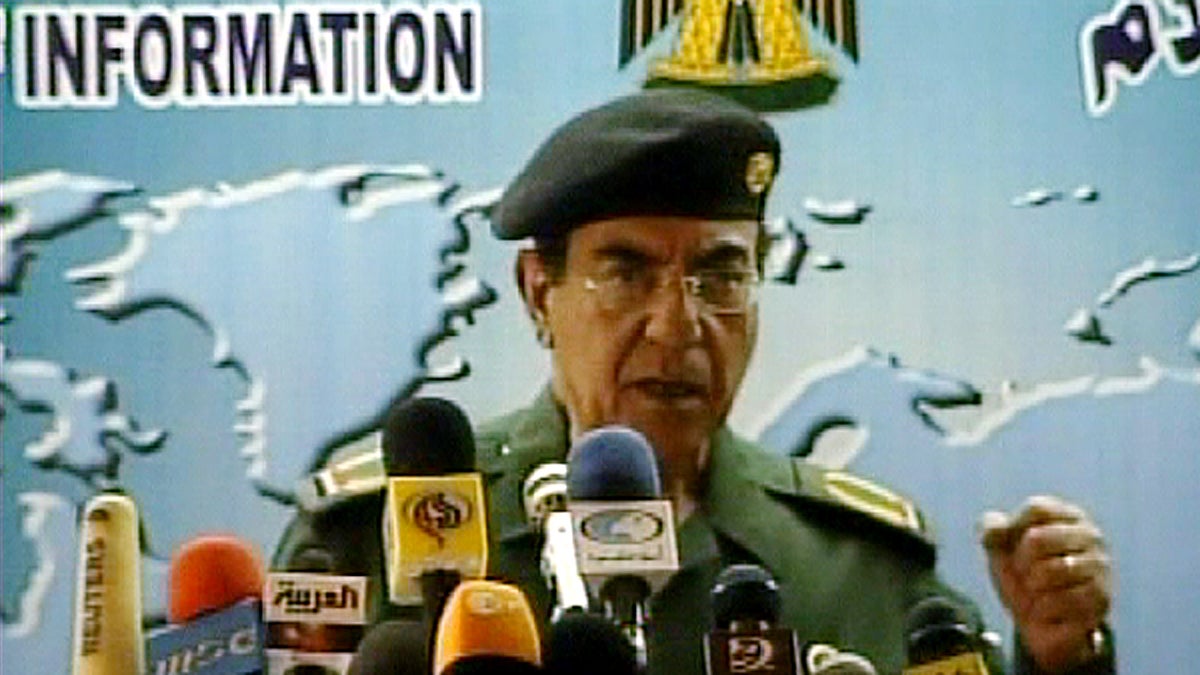Deborah Amos: In other countries ‘fake news’ is called propaganda

During the Iraq War in 2003, Iraqi Information Minister Mohammed Saeed al-Sahhaf confidently proclaimed Saddam Hussein's forces were winning, when they weren't. (AP Photo/APTN)
Fake news has been around for generations, according to NPR’s Middle East correspondent Deborah Amos.
“In the parts of the world that I’m familiar with, fake news is more commonly known as propaganda,” said Amos at a panel discussion held this week at Princeton University. The program is part of the Princeton Humanities Council’s two part series called “The Post-Fact Era?” Democracy, Facts, and the News: A Conversation with Scholars and Journalists.”
“Whenever there’s a conference on fake news, international correspondents are called in because we know about it,” said Amos, who’s reported from countries like Syria and Iraq. Amos said citizens in these countries “are more savvy news consumers.” Americans, she said, have to catch up.
“I don’t know a Middle Easterner who doesn’t know how to read between the lines,” Amos said. “They already know that they have to be more clever than the people who are producing the news.”
Amos stressed the importance of teaching media literacy in American universities and high schools. “You can teach people how to read a website,” she said.
For Amos, reading a website is becoming an essential skill, as social media becomes a platform for fake news. “To get yourself retweeted, you have to say something even more outrageous,” she explained.
Amos likes what National Public Radio is doing to help its website readers know what is true. NPR now regularly posts fact-checked versions of Trump’s speeches and executive orders. “Who knew you could beat cat videos with an annotated speech?” she said. “You can.”
Other panelists at the event agreed with Amos. Stephen Macedo, professor of Politics and Human Values, noted that partisan polarization makes reporting more challenging, but urged the audience not to lose faith in facts. “We must not concede that facts are a thing of a past,” he said.
Joe Stephens, investigative reporter for the Washington Post, described himself as cautiously optimistic. “There’s evidence of a growing thirst for painstakingly verified facts – what we reporters like to call journalism,” Stephens said. “Readership and viewership,” he added, “are at an all-time high.
However, Stephens noted that journalists are under increasing attacks. “The president has called us fake news, disgusting, scum, the worst form of humanity, the lowest form of life.”
Stephens said he’s not deterred by the nasty labels. “If you went into journalism to be popular, you’re probably in the wrong life of work,” he said. “I don’t know a single working reporter who is intimidated by the name-calling.”
Christy Wampole, assistant professor of French and Italian at Princeton University, said the media tends to appeal to the lowest common denominator. “As long as American media treats the public as gullible and stupid, they will remain gullible and stupid,” she said.
The final speaker, Keith Wailoo, said that what has changed is not the facts, but rather the public’s willingness to believe them. “‘Alternative facts’ have long been with us in every political campaign,” he said. But in an era of social media, where anyone can have thousands of followers on Facebook or Twitter, people can more easily create facts of their own, according to Wailoo. “This is one of the things Trump does – he brands facts,” Wailoo said.
Wailoo concluded by quoting a letter penned by Christopher Eisgruber, president of Princeton, earlier this month, on the role of the university.”Universities have an obligation to get at the truth,” Eisgruber wrote. “Great universities, with their dedication to durable truths… make a contribution to the world that is more valuable than ever.”
WHYY is your source for fact-based, in-depth journalism and information. As a nonprofit organization, we rely on financial support from readers like you. Please give today.




